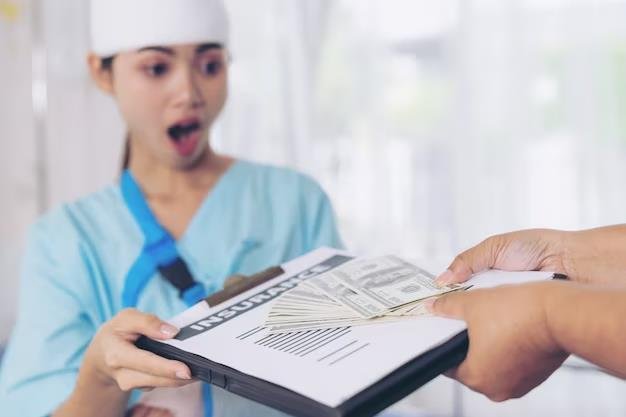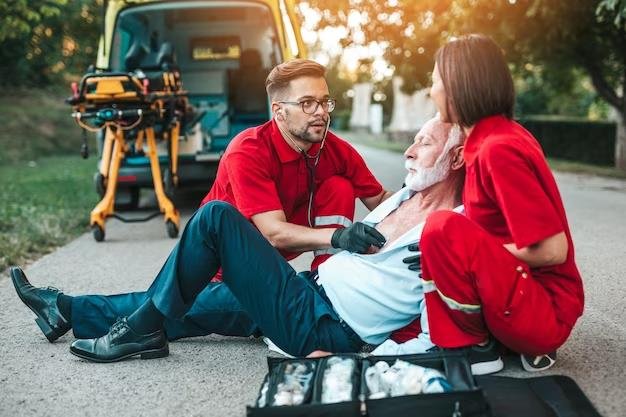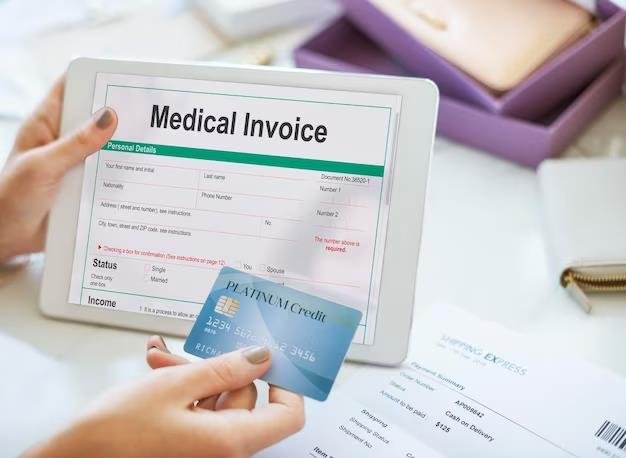Anyone might be involved in a car accident, and New Jersey experiences a significant number of these tragic incidents. When such accidents happen, the immediate aftermath frequently raises a number of issues, with medical expenses taking precedence.
In New Jersey, there is a special procedure for managing these medical expenditures following an automobile accident that entails a set of processes. The procedure for handling these bills through injury claims is described in this article.
By comprehending this procedure, people can be better prepared to manage the financial ramifications of an injury and make sure they get the support they need while recovering.
Understanding New Jersey’s No-Fault Insurance System
In New Jersey, when it comes to car accidents, there’s a specific type of insurance system in place called the “no-fault” system. But what does this mean? Simply put, no matter who caused the accident, your own car insurance will pay for some or all of your medical bills. This helps speed up payments without waiting to figure out who was at fault.
Within this no-fault system, there’s a crucial component known as Personal Injury Protection or PIP. This coverage is part of your car insurance. Its primary job? To cover your medical expenses if you get hurt in an accident. This means that if you or anyone in your car is injured during an accident, PIP is designed to help cover those medical bills.

Medical Expenses Coverage Under PIP
Now, you might be wondering: What does PIP cover exactly? PIP pays for necessary and reasonable medical expenses. This can include hospital stays, surgeries, doctor visits, and even some therapies you might need after an accident. But like all insurance, there are boundaries.
For starters, not everything is covered. There might be certain treatments or medications that PIP won’t pay for. Also, there are limits to how much PIP will cover. When you choose your insurance policy, you pick a PIP limit, which is the maximum amount the insurance company will pay for medical bills. If your medical expenses go beyond this limit, you’ll need to find other means to pay them.
Moreover, many PIP plans have deductibles. This is the amount you must pay out of your pocket before the insurance starts paying. For example, if you have a $500 deductible and $3,000 in medical bills, you’ll pay the first $500, and then your PIP insurance will cover the remaining $2,500.
The Role of Health Insurance
When navigating medical expenses after a car accident in New Jersey, understanding the role of health insurance is essential. One key term you’ll often hear is “coordination of benefits.” In this context, it refers to how your car insurance (specifically PIP) and your health insurance work together to cover your medical bills.
Typically, PIP acts as the primary coverage after a car accident. This means it pays first. Once your PIP benefits are exhausted, health insurance steps in as secondary coverage. It will cover the remaining expenses, but only if they fall within your policy’s scope.
But when does health insurance truly kick in? Imagine you’ve been in an accident, and your PIP limit is reached. Any additional medical expenses might then be handled by your health insurance, provided the treatments are part of your policy. Another scenario is when specific medical treatments aren’t covered by PIP; here too, your health insurance can serve as a backup, given the treatments are part of its coverage.
Out-of-Pocket Medical Expenses
Despite having both PIP and health insurance, sometimes, the total medical bills can exceed the combined coverage. In such cases, you’re faced with out-of-pocket expenses. When the bills are more than your PIP coverage and health insurance can handle, what’s the next step?
In New Jersey, you might have the option to seek compensation through a liability claim against the driver who caused the accident. This means, that instead of your insurance covering the bills, the at-fault driver’s insurance might have to pay. By filing such a claim, you aim to get compensation for the remaining medical bills, and possibly other damages like pain and suffering.
Filing a Lawsuit for Additional Damages
At times, even a liability claim might not cover all the expenses, or there might be disputes about who was at fault. In these instances, considering a lawsuit might be a logical step.
When you file a lawsuit, you’re essentially making a formal claim against the responsible party, seeking compensation for damages incurred, including medical bills. As part of the lawsuit, your medical expenses play a crucial role. They help determine the compensation amount. This not only covers the current bills but can also account for any future medical treatments arising from the accident.
Challenges in Getting Medical Bills Paid
Accidents are stressful, and dealing with the aftermath can sometimes be even more challenging. One of the significant issues faced by many victims is getting their medical bills paid. This process is not always smooth and can present a set of challenges:
Delays in Insurance Payments
Waiting for the insurance to cover medical expenses can be a long process. After filing a claim, insurance companies might take time to investigate, assess, and finally make the payment. During this waiting period, victims might feel pressure from medical providers to settle their bills.
Denial of Certain Treatments
It’s not uncommon for insurance companies to deny coverage for certain treatments or procedures. They might argue that a specific treatment wasn’t necessary or that it’s not covered under the policy. This leaves victims in a difficult situation where they have to either pay out-of-pocket or forego essential care.
Working with a Car Accident lawyer in New Jersey
Given the challenges in navigating the insurance landscape and ensuring medical bills get paid, many victims turn to legal professionals for assistance. Here’s how working with a car accident lawyer in New Jersey can be beneficial:
Benefits of Seeking Legal Guidance in NJ
Expertise
Car Accident attorneys understand the nuances of car accident claims and medical bill compensations. Their experience allows them to guide victims through the process effectively.
Negotiation Skills
Insurance companies can sometimes be tough to deal with. Having an attorney means there’s someone to negotiate on your behalf, ensuring you get the compensation you deserve.
Ensuring Medical Bills Are Addressed
Reviewing and Assessing Bills
Attorneys can review your medical bills, ensuring there aren’t any errors or inflated charges.
Liaison with Insurance
They can communicate directly with the insurance companies, pushing for timely settlements and challenging any unfair denials.
Legal Recourse
If all else fails, Jersey city personal injury attorneys are prepared to take the matter to court, ensuring justice is served and bills are covered.
In essence, while getting medical bills paid after a car accident in New Jersey can be daunting, having the right resources and knowledge can ease the process. If the accident happened in urban areas then Jersey City accident attorneys can also play a pivotal role in bridging the gap between victims and their rightful compensation, making the journey a bit less challenging.

FAQs
What is New Jersey’s no-fault insurance system?
New Jersey’s no-fault system means that after a car accident, your own insurance will cover your medical expenses regardless of who caused the accident.
How does Personal Injury Protection (PIP) coverage work?
PIP coverage pays for your medical expenses and sometimes lost wages, after an accident up to the limit of your policy, irrespective of fault.
When might health insurance cover car accident-related medical bills?
Health insurance may cover these bills when PIP benefits are exhausted or in specific circumstances where they are designated as the primary coverage.
Can I sue the other driver if my medical bills exceed my PIP coverage?
Yes, if your expenses surpass your PIP limits and the accident meets certain severity criteria, you can seek compensation from the at-fault driver.
When should I consider consulting a car accident lawyer in NJ?
It’s advisable to consult a lawyer if you face challenges getting bills paid, if you’re considering suing the at-fault driver, or to ensure you’re getting the full benefits you’re entitled to.
Conclusion
In conclusion, it is crucial to comprehend the nuances of how medical costs are handled in New Jersey following auto accidents. This information is useful for ensuring that one’s rights are upheld as well as for navigating the difficult financial fallout from a traumatic experience. There are many subtleties to this process, from dealing with insurance delays to comprehending the extent of coverage.
These difficulties make it clear that getting expert advice can be quite helpful. Expert guidance may simplify the procedure, make it more manageable, and guarantee that people receive the recompense they justly merit. In such a scenario, seeking the advice of experts can significantly impact the path to recovery.
















